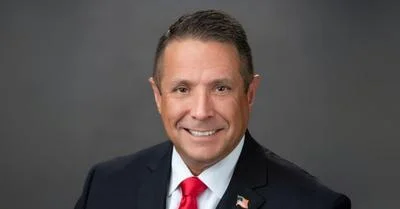Chairman, Tim Scott (R-SC) of U.S. Senate Committee on Banking, Housing, and Urban Affairs. | https://www.banking.senate.gov/about/ranking-member
Chairman, Tim Scott (R-SC) of U.S. Senate Committee on Banking, Housing, and Urban Affairs. | https://www.banking.senate.gov/about/ranking-member
Chairman Tim Scott's Congressional Review Act (CRA) resolution has advanced through the legislative process, with the U.S. House of Representatives passing the measure to overturn a rule set by the Biden Consumer Financial Protection Bureau (CFPB) on overdraft fees. The resolution, which had previously cleared the Senate, is now awaiting action from President Trump.
Chairman Scott voiced concerns about the CFPB's overdraft rule: "As I’ve said repeatedly, the Biden-era CFPB overdraft rule would harm the very consumers it’s supposed to protect and limit access to credit and important financial services for hardworking Americans. I’m grateful to House Financial Services Chairman French Hill for his leadership on this effort in the House, and I look forward to President Trump signing this resolution and overturning this misguided rule once and for all."
In November 2024, Chairman Scott had requested the Biden administration halt new financial regulations. Despite his objections, the CFPB's Director Rohit Chopra proceeded with implementing the overdraft rule, which led to Scott's introduction of CRA resolutions alongside House Financial Services Committee Chairman French Hill.
The resolution received support from financial institutions, including the Consumer Bankers Association and the American Bankers Association. Advocates for the resolution pointed to potential negative impacts of the CFPB rule, such as reducing banking options for consumers.
The rule faced criticism from several quarters, with the Wall Street Journal Editorial Board echoing the concerns expressed by Scott. They highlighted a study from the Federal Reserve Bank of New York, stating: “Sen. Scott cited a Federal Reserve Bank of New York study that found such caps ‘hinder financial inclusion’ because ‘banks reduce overdraft coverage and deposit supply.’ The rule would cause banks to drop overdraft protection and raise other fees, including on checking accounts. Lower-income folks would lose access to the banking system and perhaps have to pay more to get payday loans.”
With Presidential consideration pending, the future of the CFPB's overdraft rule hangs in the balance.






 Alerts Sign-up
Alerts Sign-up